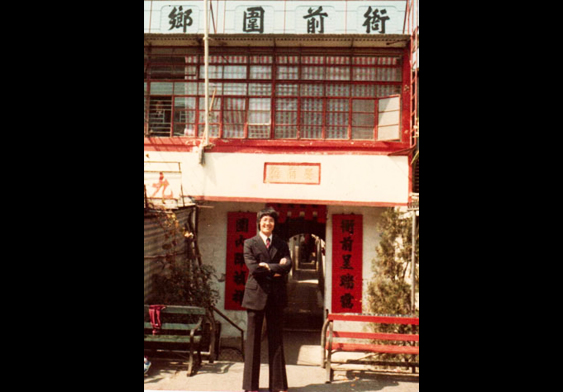
Ng Chiu Pang as a youth
Ng Chiu Pang photographed in front of the village gatehouse in the early 1980s-Provided by Ng Chiu Pang
Ng Chiu Pang as a youth
Ng Chiu Pang photographed in front of the village gatehouse in the early 1980s-Provided by Ng Chiu Pang
People tended to appreciate the value of memories more as they aged
In the old days, Ng Chiu Pang rarely returned to his home village because young people were always forward-looking and only tended to look back at memories fondly as they aged. He knows that when people leave this world, they cannot take away anything physical. Though he now owns a big house, a car and watches, Ng Chiu Pang knows he will sooner or later have – and be – nothing except a memory. To this end, he believed that the village office, Tin Hau Temple and ancestral hall were all cohesive forces in village life. If all of these buildings were to be demolished, no villager would want to return to the village ever again. Ng Chiu Pang hopes to keep these symbols of the walled village for his children and grandchildren to pass down through the generations so they can understand who their ancestors were. Ng Chiu Pang’s son has not yet reached the stage that he will cherish past times and artifacts. He has so many things to keep him busy that he has not yet had time to appreciate the value of his family’s memories. Ng Chiu Pang’s father had told him old stories of Nga Tsin Wai when they lived in the Happy Valley civil servants’ quarters. Most of these stories were about his grievances because he held views different from his clansmen. Today, Ng Chiu Pang shares the same grievances as his father did before him.


 BACK
BACK  CLOSE
CLOSE 